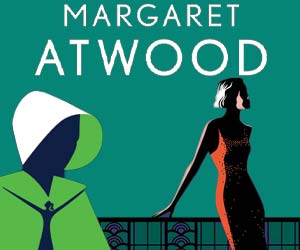Oryx and Crake (The MaddAddam Trilogy)
(Book #1 in the MaddAddam Series)
Select Format
Select Condition 
Book Overview
NATIONAL BESTSELLER - The first volume in the internationally acclaimed MaddAddam trilogy is at once an unforgettable love story and a compelling vision of the future--from the bestselling author of... This description may be from another edition of this product.
Related Subjects
Contemporary Fiction Literary Literature & Fiction Science Fiction Science Fiction & FantasyCustomer Reviews
Unnecessary, confusing flow, unsatisfactory
Awesome
Apocalyptic eloquence.
"The elimination of one generation means game over forever."
A dark, fascinating novel
One of the year's best novels for 2003
Jack and Jill it is Not
Oryx and Crake Mentions in Our Blog

Thriftbooks is ringing in a milestone anniversary this year—twenty! In celebration, here are twenty terrific books, spanning a variety of genres, that came out the year we were born.

We always enjoy taking a look back at the pop culture that has withstood the test of time. Over the past month, we've explored some of the notable books and movies turning fifty, as well as books that came out a century ago. Now we remember ten memorable books turning ten.

This month marks our eighteenth birthday here at ThriftBooks. As we transition into adulthood, we are celebrating by remembering some of the most popular books, music, and movies from 2003, the year we were born.

Margaret Atwood is 81 years old today! The renowned Canadian author has been publishing poetry, novels, nonfiction, children’s books, and more since 1961, but her star just keeps on rising. Known largely for books like The Handmaid’s Tale, you may be surprised to learn that speculative fiction actually represents a small fraction of the versatile author’s work.







